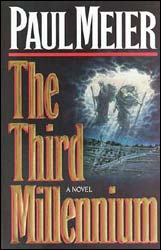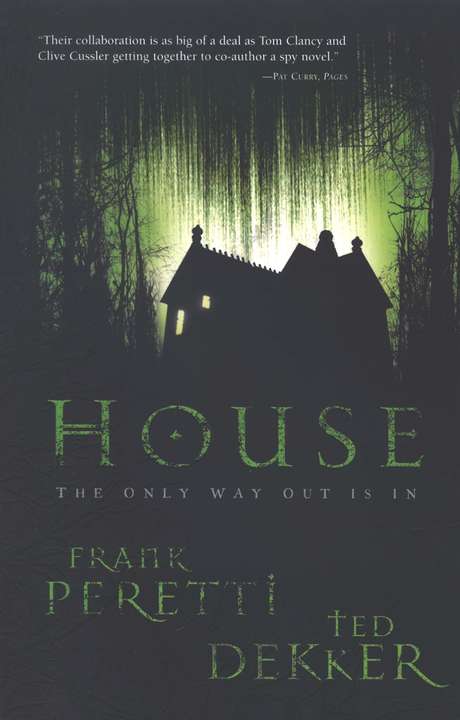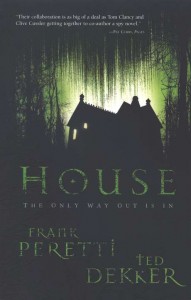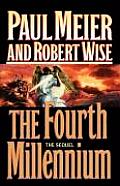Observations Of A Youngling: Recurring Things That Shouldnât Be
Good morning. I’m writing this partially in the middle of a school cafe area, so we’ll see how this turns out. A few weeks back, Stephen and I got into some discussion on various recurring themes in fiction. He asked me to go into some of the reasons why this phenomenon occurs–therefore, here we go. My thought, though, is that there is this bizarre snake-eating-itself effect where art reflects culture until culture reflects art (I’m stealing that from someone – can’t recall who).
Real world example 1: Somewhere in college I swore off sitcoms. I’ve got no quarter for race or gender bashing, and no quarter for people behaving like idiots and spending nine seasons never maturing as characters (Re: Friends). That, frankly, isn’t real life. Neanderthal men crushing beer cans on their heads and grunting stupidly paired with domineering, shrewlike women who are more male than female is beyond irritating . I’ve no quarter for sexual humor and a bare, bare tolerance for people trying too hard to be funny. Call me a killjoy.
But here’s where the real problem comes in: Sure, those things start out as seemingly harmless caricatures. Of course no one acts that way…right? You know, save the idiots we lock up.
That is, until an entire generation of kids grows up thinking that caricature is the norm.
Example 2: I’m a substitute teacher, and on record as saying there is never a “bad kid.” They’re hyper and will push the limitations of your sanity, but, nine times out of ten, that’s it. A squirmy, hyper, or ornery kid does not equal “bad kid.”
And the problem is, some of these kids really do turn into “bad kids” because they start believing that’s all they are. I’ve seen this happen: These kids really do start accepting the label. They’re bad. They’re not smart. They’re behind. They’re…lacking. They’re ADD. Dyslexic. ADHD. And because that’s all that’s expected of them, that’s the road they start to take.
So that’s why I can’t watch sitcoms for more than five minutes without getting nauseas.  I don’t want a whole generation of boys and girls growing up to think that’s normal. They become adults, and they teach that to their kids, who teach their grandkids, and so on.
Yeah, eventually someone figures it out and something happens. But that’s just a lot of needless scars to me. And I just happen to think better of men and women than that. A lot better. Especially those of us who are co-heirs with Christ.
So on to books.
Peeve 1:Â The Moody Teen
And that’s where I think things get interesting in fiction. I don’t know what it is with the “angsty moody teenager” fad, but evidently people like it. Now, let the world do what it wills, but I think maybe, just maybe, we should tackle this a bit better. There’s consequences to being a smoke-blowing, rebellious, moody kid. And you’ll ostracize and insult the ones that aren’t that way.
Is it really good that even the church doesn’t expect anything more out of these kids? Yeah, my high schoolers groan over their assignments. Once they’re satisfied I am aware of their plight, they sit down and get to work. (Usually.) The middle schoolers…They have good intentions. They just need help following through.
My youth pastor had a saying (many, but this is one): “Teenagers are the kindest or cruelest people in the world.” And he did everything in his power to slay the cruelty and cultivate the kindness.
I’m just saying.
Peeve 2: Wuv, Twu Wuv
Same thing with chick-flicks and their novel counterparts: Ladies, do you really expect nothing more from a guy? From yourselves?
This is how the brief conversation with Stephen went:
Me: Per prairie romances: As a woman, can I put in a request that all these women find something better to do than moan about âevil patriarchal menâ? Pretty please? (Do not get me started.)
Stephen: Kaci, Iâll probably say more of substance later, but your comment makes me wish I could install a Facebook-Like kind of button on here, then modify it so I could press it several dozen times.
âEvil patriarchal menâ? That seems the fiction equivalent of men and women, even in churches, who make dumb cliched jokes about opposite-gender stereotypes. I donât mind a little ribbing, but Christians should take seriously the truths that marriage and differing roles portray Christ and His Church. And while of course nothing is perfect, either in reality or fiction, why not show more of the ideal?
Well, time to start, I suppose. This point is a bit female-oriented. You gentlemen will simply have to reapply the principle as necessary, because I’m a girl, not a guy. 0=)
I think we definitely need more “ideal,” although I think some people mistake ‘ideal’ for ‘perfect.’ But I think it’s high time we stop harping on the negatives and invoke a few positives. Scripture has plenty to say about women who are shrewish harpies.
In other words, fine. Maybe he can’t remember a tie to save his life and maybe you can’t communicate with him well to save your life. Maybe you two both have flaws to work out.
But don’t get in this mindset of your world revolving around a guy. Are you seriously going to tell me this is abundant life? Is this joy in our sufferings? (Sorry, Americans – most of you have not suffered like the rest of the world does, myself foremost among the non-sufferers.) Is that really it? Is that what you want your sons and daughters to strive for?
Where’s the fire? Let’s not buy this twisted logic running around that guys are both the source of pain and the source of comfort. Given they are made imago dei and you, my dears, are no angels, don’t demonize or deify the other gender. And don’t teach these kids I see every day do to that either. I’ve got enough damage control to do. And I want to breathe life, breathe hope, into all of them.
I want my friends to know that real, godly guys exist. That men who really do know how to treat a lady are around, and there’s more of them than evidently they imagine.
I want these teenagers to know that there really are adults they can trust and that can slip into that father or mother role they want so desperately.
I want boys and girls to turn into magnificent men and women whose hearts overflow and who strive to live their lives worthy of this glorious calling.
I want to find the most unredeemable person in the world, pick them up, and tell them there is hope and a future, and that there most certainly is redemption available.
And I don’t think that catering to the world’s distorted, death-eater’s view of humanity can come anywhere close to that. Do not be conformed. We do not love as the world loves.
Where was I…?
Peeve 3:Â The Spiritual Midlife Crisis
This one’s related to The Moody Teen, so bear with me. Here’s how Stephen and I got started:
Me: Per spiritual crises: Iâm not sure how healthy fixating on âspiritual midlife crisisâ is. Maybe, occasionally, itâd be nice to see someone rock solid despite the hurricane around them. Occasionally, you know. You know, meet the storm head on and go full throttle through the center.
Stephen: I donât believe Christians obtain instant sanctification the moment theyâre saved. Scripture is clear on that point. (Plus, weâd take our holiness and go home, thankful to God almost only for what Heâs done for us in our past, instead of having greater incentive to rely on Him in the present!) Still, I canât agree more: can more of our stories (not all, but more) get past the whole âspiritual midlife crisisâ thing, and emphasize more of Godâs glory and love? (This sound very Spiritual to say, and thereâs a risk of overcorrecting here, but I do believe much of contemporary fiction swings this way due to the bad influence of âfelt needsâ pragmatism in churches, and Surveys that Show churchgoers really want this-and-such self-emphasis.)
Me: No worries. I was responding drive-by fashion last night. You conveyed my intended meaning regarding âspiritual midlife crisesâ much more articulately. Part of that may also depend on what weâre calling a âcrisis,â too. Corrie Ten Boom had a crisis. But deciding God might not love you because your boyfriends keep breaking up with youâŠWell, maybe God just thinks you date crappy men and is sparing you future crisis. Or maybe the problem is you, and heâs sparing them. Know? Itâs kinda like the trend of teen fiction to write angsty, moody teenagers all the time. Itâs justâŠnot good to always focus on the downswing. And itâs insulting to the ones who arenât moody and angsty.
I guess when I say âmature,â I just mean âhas figured out that God isnât out to get them.â At least in that particular sense.
I definitely didn’t explain myself well, here, but Stephen helped me out. Part of this may be a bias on my end, but, to be perfectly honest, sometimes I really do get tired of the following:
–Why did/How could God let this happen?
–I don’t like this situation. I think I’ll get mad at God and decide I don’t believe in and/or trust him anymore.
–Why can’t God just poof me out of this situation?
Don’t get me wrong. I’m the first to say God’s big enough to handle our anger. And I’m the last to downplay anyone’s pain. Those emotions are quite real, and Scripture is full of God helping us come down off the proverbial ledge.
But you know what? Sometimes, it’s really, really cool to read a book where the lead character takes the hit, falls, gets up, takes another hit, and falls again. And gets up. Again.
“Though a righteous man falls seven times he will rise.”
“Elijah was a man like us with a nature like ours.”
Honestly, that’s why we like movies like Braveheart. Doesn’t matter he’s outnumbered 3:1. His wife’s murdered. He’s betrayed. The lords are fickle. And he’s hardly made of stone – he struggles. But he gets up. Again. And again.
I’m not sure what the underlying cause of this one is. I’m not sure if we as a society just got tired of pragmatism and took a flying leap into emotionalism as backlash or what. I’m not even sure it’s accurate to say this one is across board. But a real, living, breathing person can only be mad or be in tears so long before he’s got to get up, wipe his face, and confront the ordeal headlong.
Even if it’s just confronting a girl spreading rumors. (Shameless plug: I still love how Eric does this in Valley of Bones. I bookmarked it.)
And it’s like somewhere along the way we didn’t pay attention to the Word. The events of the OT were recorded for our instruction. Time and time again, if you’re watching, God proves himself able and willing to help us deal with those crazy emotions and imaginations. You’ll notice more than once he doesn’t even try to talk until after he’s fed and watched over his servant for days until the man is in a physical and psychological state where he can think.
And I think maybe these ‘midlife crises’ are nothing more than us possibly realizing we maybe don’t quite have the strength and control we so bravely want to have. At the root of these ‘crises,’ perhaps, is fear.
Perfect love drives out fear.
So there you go. I have one left (for now), but this is a good place to end. To wrap up: I think most situations where we get caught up in portraying people through the world’s eyes is, ultimately, a sign that far too much of the world’s perspective has gotten into our system. And in the end, these caricatures cannot offer, even fathom, the hope that exists.
Thanks for reading.
You are loved. Much loved.







































 I remember researching the Garden of Eden back in 1998. I wrote a rough draft of The Sending under a different title and the result was a secular novel with many speculative features but zero faith.
I remember researching the Garden of Eden back in 1998. I wrote a rough draft of The Sending under a different title and the result was a secular novel with many speculative features but zero faith.
 Other than this particular book, I have not read other stories that commit this, ahhh, unique writing method so directly. And without reading the TTMing in The Third Millennium, I wonder if I would have ever become aware of the problem. So again, that book became a blessing in disguise: I learned something that, as a writer, I might have otherwise fallen into even more.
Other than this particular book, I have not read other stories that commit this, ahhh, unique writing method so directly. And without reading the TTMing in The Third Millennium, I wonder if I would have ever become aware of the problem. So again, that book became a blessing in disguise: I learned something that, as a writer, I might have otherwise fallen into even more.



 Another glaring example is from the sequel, which tries to portray a literal Millennial Kingdom.
Another glaring example is from the sequel, which tries to portray a literal Millennial Kingdom.


